MercoPress. South Atlantic News Agency
Tag: Guido Mantega
-
Sunday, November 3rd 2013 - 00:42 UTC
Brazil posted in September its highest primary budget deficit in five years
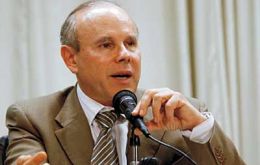
Brazil posted a primary budget deficit of 9.048 billion Reais (4.1 billion dollars) in September, its biggest in nearly five years and the government reacted announcing a plan of cuts fearing an impact from credit rating agencies.
-
Monday, October 28th 2013 - 05:33 UTC
Rousseff and Mantega dispute IMF report on Brazil as 'incoherent'
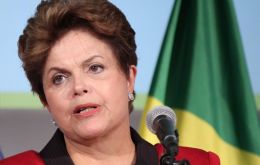
Brazilian President Dilma Rousseff responded to the International Monetary Fund concern over the country's fiscal situation, saying Brazil was fulfilling its responsibilities. IMF claimed that Brazil's competitiveness had eroded in recent months and downgraded the country's growth forecast from 4.25% to 3.5%.
-
Monday, October 21st 2013 - 07:39 UTC
Brazil's development bank to target infrastructure and less on corporations
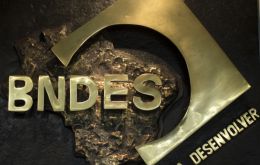
Brazil will inject less money next year into the country's development bank BNDES, (National economic and social development bank), its leading source of long-term corporate loans, to focus more on infrastructure financing as concerns mount over public debt.
-
Saturday, October 19th 2013 - 18:04 UTC
Rousseff stimuli policies and government intervention in the economy questioned
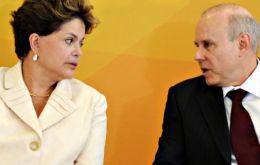
Brazil's economic debate is heating up after three former central bankers this week criticized the economic policies of President Dilma Rousseff, saying she is making Latin America's biggest economy less efficient and more sluggish.
-
Thursday, September 26th 2013 - 06:39 UTC
Brazilian industry forecasts higher GDP growth this year: 2.4%

The Brazilian industrial federation on Wednesday upped its 2013 growth forecast to 1.4% from 1% and its GDP growth projection from 2% to 2.4%. But, despite the better data, the National Confederation of Industry (CNI) urged caution. “The improved economic outlook is no guarantee of a strong growth rate,” it said.
-
Thursday, September 26th 2013 - 05:58 UTC
Brazil’s development bank ‘overbooked’ needs support from the private sector

The Brazilian state development bank BNDES is “overbooked” and needs the private sector to step up funding in investments, according to bank president Luciano Coutinho. Lending by BNDES and other public banks has increased six times faster than credit by non-state bank this year, as the government tries to fuel economic growth.
-
Friday, September 20th 2013 - 07:36 UTC
Brazil’s Mantega becomes supporter of US stimulus and praises Fed’ last decision
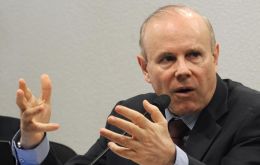
Brazilian Finance Minister Guido Mantega, on Wednesday cheered the Federal Reserve's decision to leave stimulus unchanged, saying it may signal an end to market turmoil. Mantega, who gained international fame for using the term “currency wars” to describe rich nations’ efforts to lift exports by weakening their currencies, said a gradual stimulus withdrawal may boost Latin America's largest economy.
-
Wednesday, September 4th 2013 - 01:26 UTC
Brazil's inflation tendency again picks up as food and transport prices rebound
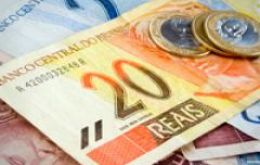
Brazil’s twelve-month inflation ended August at its lowest level this year, according to a central bank survey of fourteen economists. This means the 12-month IPCA consumer-price index is likely to weigh in at 6.10% for August, down from 6.27% at the end of July.
-
Saturday, August 31st 2013 - 02:01 UTC
Sigh of relief for Mantega: Brazilian economy expands 1.5% in second quarter

Brazil’s economy expanded 1.5% in the second quarter of 2013 compared with the previous three month, exceeding the most optimistic market expectations, official statistics showed Friday. The farm sector fared best, growing 3.9%, followed by industry with 2% and services 0.8% according to the Brazilian Institute of Geography and Statistics (IBGE) website.
-
Tuesday, August 27th 2013 - 22:06 UTC
Brazil’s Mantega admits ‘mini-crisis’; blames the US Fed confusing messages
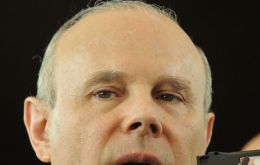
Brazil's economy is going through a “mini crisis” stemming from global markets turbulence made worse by confusing messages from the US Federal Reserve, complained Finance Minister Guido Mantega.
